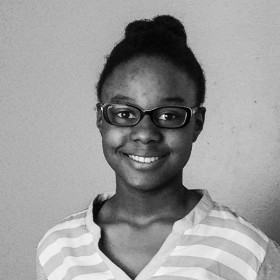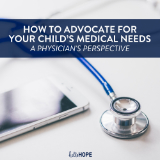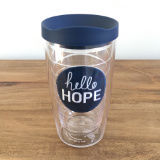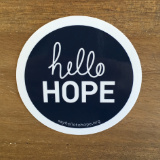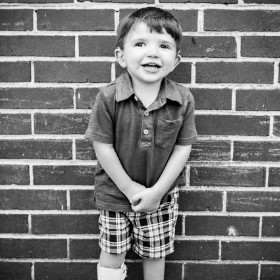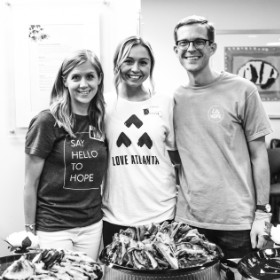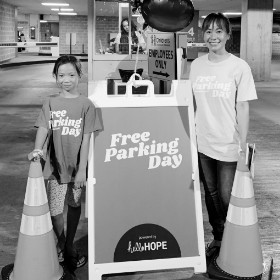Chronic Myelogenous Leukemia: Madeline’s Story of Hope [Part 1]
In January 2009, Madeline Gaffney was approaching her fourteenth birthday when she began to complain of tiredness and joint pain. As an active teen, who maintained straight A’s while heavily involved in dance and competitive cheerleading, this news wasn’t immediately worrying. “Who wouldn’t be tired with such a schedule?” her mother, Ellen, thought. “Dancing six days a week would give anyone joint pain.”
But when Madeline’s dance teacher expressed concern about large bruises on her legs on a day when Madeline seemed especially fatigued, Ellen decided to take her daughter to the pediatrician.
What followed over the next days and weeks launched Ellen and her husband Chris into what many parents would consider their worst nightmare: a cancer diagnosis and emergency treatment. And yet what began as a nightmare has become a compelling story of hope about a family who took their pain and used it to draw closer together and to inspire, educate, and support many others.
Diagnosis and Treatment of Chronic Myelogenous Leukemia
The day after Madeline’s initial pediatric visit, Ellen received a call at home telling her that cancer cells had been found in her daughter’s blood. “I couldn’t have been more shocked,” she remembers.
Ellen was instructed to immediately pick Madeline up from school and take her to the ER at Children’s Healthcare of Atlanta. Chris rushed home from work to make the trip with them. When they arrived at the hospital after a two hour drive, they were whisked back to triage. At 461,000, Madeline’s white blood cell count was the highest the hospital had ever seen. They later learned that patients with a lower count than Madeline’s were often on respirators. Ellen recalls the sad looks on the faces of the hospital employees as they walked back to the exam room. “They knew,” she says.
The hospital oncologist told the Gaffneys that their daughter had Chronic Myelogenous Leukemia (CML). “But don’t worry,” she said to Madeline. “We are going to fix you.” Those confident and hopeful words were just what the Gaffney’s needed to hear.
Cases like Madeline’s are rare: CML is a disease which typically affects senior adults. However, due to the volume of research done on this particular disease, treatment was available to Madeline. “It used to be the worst [type of leukemia] to get,” Chris says. “And now, because of the research, it’s the best.” Following nine days of chemotherapy and apheresis at the hospital, Madeline was discharged.
Madeline continued to see specialists and have her blood work monitored several times a week while slowly working back up to full days at school. Now, eight years later, she is a senior at Georgia Tech where she majors in Industrial Engineering and pursues her love of cheerleading. She takes just one daily medication that keeps her disease inactive and sees her oncologist twice a year.
Facing Challenges and Serving Others
One of the most beautiful aspects of the Gaffney family is the way they have chosen to process the many challenges they’ve faced. “We work a lot on perspective,” Chris says. Not only have they learned not to sweat the small stuff, but each of the Gaffneys embrace their story, including Madeline. “She wouldn’t change any of it,” Ellen says. “It’s part of who she is.”
This focus on keeping perspective and embracing challenges has given them an inner strength to draw from in daily challenges because they know they have already persevered through great adversity. Even more, they display an inspiring resolve to hold onto hope and find ways to help bring about better outcomes for other families facing childhood cancer.
While Madeline’s treatment has been a great success story, Ellen and Chris are quick to point out that for many children diagnosed with cancer, the prognosis isn’t so positive. “Childhood cancer research is vastly underfunded,” Ellen says. “People think that cancer is cancer, but kids get different cancers than adults do, and you can’t treat them the same way.”
In fact, the National Cancer Institute dedicates just 4% of its funding to pediatric cancers. The whole Gaffney family, including Madeline’s three older siblings, now volunteer to raise awareness and funding for childhood cancer research through organizations like The Rally Foundation. Chris describes this as “simple ‘pay it forward’ logic.” He recognizes that while they can never thank the individuals whose collaborative work led to the solution for Madeline’s disease, perhaps their work with these organizations will provide the resources needed to save lives in the future.
Setting a Foundation of Hope
In addition to their family’s work to help bring about better outcomes for other families facing childhood cancer, the Gaffneys point to three things that have given them the hope they have needed to endure the tough times: their family, their community, and their faith.
“Family is everything,” Ellen shares. “Our children are closer to one another, and my husband and I are closer than we were before because we came so close to losing it all.”
Listening to Chris and Ellen talk about how they worked together through the process of discovering and managing Madeline’s disease is inspiring and instructive. While initially following the diagnosis all focus was on Madeline’s health, they were quick to establish a teamwork style that also allowed them to care for their other children and to help each other stay afloat.
Chris describes this as a tag-team effort to divide and conquer: he acted as Madeline’s advocate with the hospital and focused on the bigger picture so that Ellen could be present with Madeline moment to moment. “I think that’s something we’ve learned,” Chris says. “Whether it’s you, your kid, or your parents, you need an independent advocate to deal with the magnitude of what’s going on when you have a major health crisis.”
Ellen agrees, explaining that Chris allowed her to stay in the moment with Madeline and she allowed him to ask all the questions of the doctors. They split the remaining tasks, checking in with each other about their other three children and trading off nights at the hospital so that they never lost momentum.
Chris and Ellen also focused on remaining incredibly open and honest with one another, supporting each other at every stage by acknowledging and talking through what the other person was experiencing.
Leaning on Community Support
Chris, Ellen and their children also found hope and strength in their community. As independent people, Chris and Ellen initially hesitated to accept help. Fortunately, their hospital chaplain encouraged them early on, saying that they needed to allow their community to be involved in providing support. “They’re anxious about your child too, and they don’t know how to express it. It will help them, and ultimately it will help you too,” he told them.
They realized their chaplain was right. As the Gaffneys opened themselves up to their community, they received an outpouring of love from friends, families, and even complete strangers in the form of kind words and messages, prayers, and hands-on support. Chris describes the way their community supported them as an “extra dimension of hope.”
Strengthening Faith
With regard to faith, Chris admits that it was easy to have when everything was going their way, but this abrupt change in circumstances forced them to rely heavily on God while he made his presence known through providing the right doctors and resources to help their daughter.
Ellen says, “We learned that we are not in control, have never actually been in control. As simple as that sounds, we thought we had everything just the way we wanted it. We were good parents. We took our kids to church, school, the doctor and dentist, and various extracurricular activities. We did everything right, and our child still got sick. We had to rely on our faith in ways that had never been tested before, and we developed stronger prayer lives as a result. We can’t let anxiety about Madeline’s health and her future take over our lives. While I struggle with this a lot, I have to live life one day at a time, and I have to rely on God more and myself less.”
“I thank God every day that she is here. I can so easily go back to that awful phone call ... that incredibly long day when our world tilted, when we realized that our children are indeed mortal,” Ellen remembers. This deep gratitude continues to inspire and empower her and her family to uplift others in their community and pay forward the hope they have been given.
We had the chance to catch up with Madeline about her perspective on what it was like facing leukemia as a teenager. Stay tuned for part two next week!
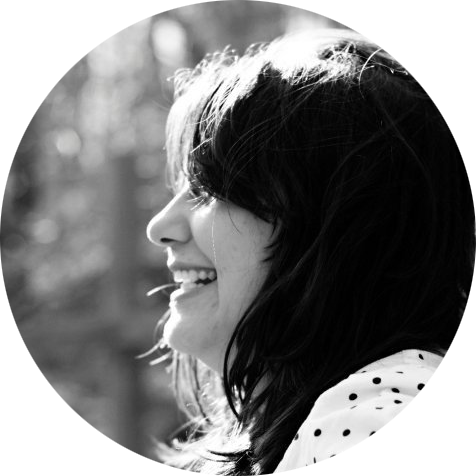
About the Author
Catie Cummings-Morris is a freelance author specializing in non-profit work and food writing living in Chattanooga, Tennessee, with her husband, daughter, and a vegetable garden.
Loading...



